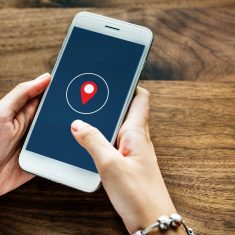Geolocation Helps Prevent Cheating in Online Gaming
 Online gaming today is possible and safe thanks to the latest technology, especially the sophisticated function of geolocation.
Online gaming today is possible and safe thanks to the latest technology, especially the sophisticated function of geolocation.
Geolocation is defined as the technique of identifying the geographical location of a person or device by means of digital information processed online. Online gaming companies have refined the process to a precision that would have been unheard of just five years ago. But because the technology is so new, it is often misunderstood and misinterpreted.
When the House Judiciary Committee heard testimony regarding the current and future role of online gaming in America following the Supreme Court’s overturn of PASPA, the conversation veered toward the ludicrous whenever geolocation came up.
Testifying before the House, former Attorney General of Nebraska Jon Bruning imagined a world where betting companies could use “geolocating” to encourage underage gambling.
“[I]magine they decide to target 15-year-olds in the Milwaukee area right now. Which you can do, with geolocating, and they decide to target them for online gambling,” he said.
Bruning’s fictional world fundamentally misunderstands how geolocation works and why gaming companies use it. Geolocation cannot pinpoint people of certain ages, and even if it could, that isn’t how gaming companies use it. Rather than a marketing method, geolocation is a technique to ensure compliance and safety.
In the world of online gaming, the primary application of geolocation technology is to determine if a bettor’s device is within state borders. Online gaming is not legal in every state, and companies face fines if they allow people to play outside of legal areas. Many companies use technology like GeoComply to stay on the right side of the law. How accurate is this technology? Reporters who tested it found that their poker apps only started to work when they were 100 feet inside the Nevada state border with California.
A more common approach used by gamers seeking to avoid state boundaries is the use of a virtual private network (VPN) or fake location apps. Called “spoofing,” this tactic disguises their actual location and transmits a different, false location from their own device to the server.
David Briggs, the chief executive of GeoComply, told The New York Times recently that “If anyone was ever to engage in any type of nefarious activity, this would be the worst place to do it….Because we got you.”
A more common approach used by gamers seeking to avoid state boundaries is the use of a virtual private network (VPN). Called “spoofing,” this tactic disguises their actual location and transmits a different, false location from their own device to the server.
How does geolocation software defend against these bad actors who try to spoof their location so they seem to fall inside legal boundaries? And how does this work in a state with more densely populated borders than Nevada? When iDEA Growth conducted an independent study to explore those questions, researchers found that, according to the New Jersey Gaming Enforcement Agency, geolocation was working fine for 98% of users within New Jersey and no reported cases of users being able to spoof their location from out of state. Another reason people can’t use a VPN or other location spoofing tool to convince software they are located in New Jersey when they are not is the fact that the Division of Gaming Enforcement checks and rechecks a bettor’s location at least every 20 minutes. Technologically, it’s far more difficult to location spoof with when constant checks are implemented.
If anything, the New Jersey geolocation compliance software is too exacting. The study’s remaining 2% of users who were not able to be located effectively when they were within New Jersey weren’t bad actors who managed to sneak in, but actually people within the state who were false negatives (people inside the state who were incorrectly rejected). Instead of risking the chance of illegal betting outside of state borders, the geolocation technology errs on the side of caution by using a buffer zone. New Jersey’s dense borders create the need to be particularly vigilant about keeping out would-be bettors who are simply near the state.
Lawmakers who don’t understand how geolocation works should listen to the experts. In order to remain compliant, gaming companies contract or employ some of the leading geolocation experts today. If legislators want to know more about the safety and accuracy of geolocation, maybe next time instead of speculating, they could ask some of them to testify.
